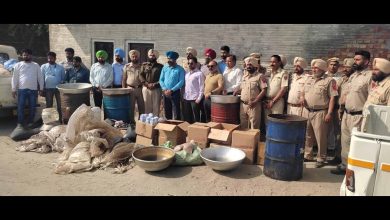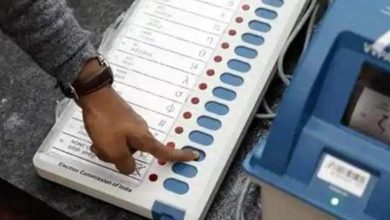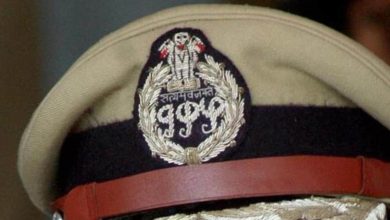Can the Congress stop the Shivraj Singh Chouhan juggernaut?

After being chief minister for an uninterrupted 13 years, Shivraj Singh Chouhan faces his toughest battle yet in the Madhya Pradesh assembly elections. The state goes to polls on November 28. Results will be declared on December 11 along with the results of the other four states – Rajasthan, Chhattisgarh, Telangana and Mizoram — that are holding state elections in November and December.
While opinion polls show different results, the Congress has its best chance in the last 15 years to wrest back the state from the BJP.
Many political pundits agree that the election may be too close to call. This is clearly not a ‘wave’ election, and while the Congress is putting up a spirited fight, Chouhan remains a popular figure in many parts of Madhya Pradesh.
A quiet winner
When Shivraj Singh Chouhan became chief minister in 2005, he had a mammoth task ahead of him as he was taking the place of Hindutva mascot Uma Bharati and senior Sangh leader Babulal Gaur. Though he was already a five-time Lok Sabha MP by then, Chouhan was considered relatively lightweight in the hierarchy of the Madhya Pradesh BJP. His non-aggressive style of politics also added to that image.
His victory in the 2008 assembly elections shut all the sniggering within his party. From then till the next election in 2013, Chouhan consolidated his power both within the state unit of the party and the administration, in the process frustrating the Congress’ attempt at a comeback. The victory in 2013 made him among the star BJP chief ministers.
This time around, farmers’ unrest and allegations of corruption are among the major issues the Congress is using to pin down the chief minister. But Chouhan’s aura of a steadying, stable presence in the state’s politics has not diminished. It is not clear if the Congress has been able to puncture that image.
Tribal votes
To be assured of victory in the Madhya Pradesh elections, both the BJP and Congress have to do well in tribal-dominated areas, which account for 47 seats in the 230 member House. Before 2003, the then chief minister Digvijaya Singh’s popularity in these regions ensured that the Congress had an edge over the BJP, especially in the western tribal zone. The Congress is hoping to regain its influence among the ST (Scheduled Tribe) communities of the state in the 2018 polls.
The curious upper caste theory
According to one theory, Chouhan’s unusually strong language in defending reservations has upset a section of the BJP’s traditional upper caste base. After the Supreme Court amended the SC/ST Prevention of Atrocities Act earlier this year citing “false implications” under the Act, the BJP-ruled central government brought in legislation that sought to effectively neutralise the Supreme Court order.
In that context and amid the protests and counter-protests that followed, Chouhan’s open dare to anyone to stop reservations (“Koi mai ka laal aarakshan khatam nahi kar sakta”) visibly annoyed some upper caste groups – or so goes this theory. Can the Congress, which wisely stayed out of the controversy, be an unintended beneficiary of this alleged row?
What will the farms yield?
While releasing his party’s manifesto, senior Congress leader Kamal Nath emphasised that if it came to power, his party would slash farmers’ power bills by 50 percent besides going in for large-scale loan waivers. Congress president Rahul Gandhi has repeatedly brought up farmers issues in rally after rally.
Realising that it is difficult to make a significant dent in the BJP’s urban support base, the Congress is going all out to highlight the alleged raw deal farmers have got under the BJP government.
But crop prices is only one part of the equation. The BJP is countering the Congress’ narrative of doom and gloom by stressing that the various welfare schemes introduced and strengthened by the Chouhan regime have gone a long way in mitigating rural distress.
Which narrative will prevail? For voters who haven’t made up their mind yet, the last lap of campaigning could prove crucial.







